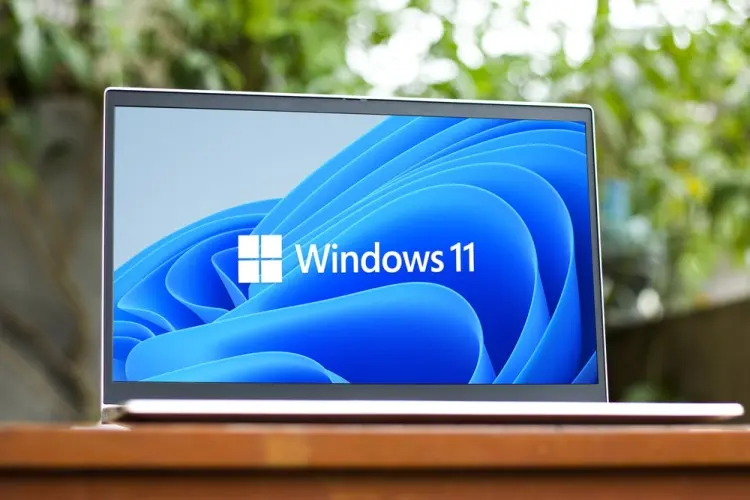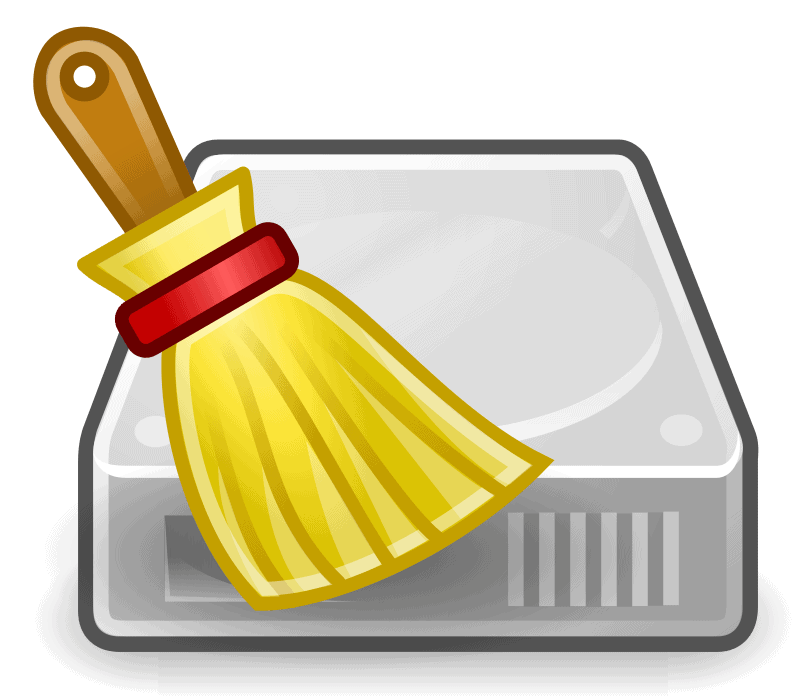How To Speed Up Computer With Windows 11

Tired of your computer running slower than you’d like it to? Windows 11 is here to help! This latest version of Windows offers numerous ways to speed up your computer, many of which can be done from the comfort of your own home. With just a few clicks, you could be seeing blazing-fast speeds for all your computing needs. In this article, we’ll show you how to restate speed up computer with Windows 11, so you can get back to browsing and streaming in no time.
Feeling frustrated by long wait times when launching programs or switching between windows? A sluggish computer can cause major headaches, but it doesn’t have to! Windows 11 has some great features that are designed specifically to help users boost their system performance. You don’t need any special technical knowledge or skills; all it takes is a few simple steps and you’re on your way.
Ready to put the pedal to the metal and get your computer running faster than ever before? Keep reading and we’ll walk you through exactly how to restate speed up computer with Windows 11. It’s easier than you think, so let’s get started!
How Can I Make My Computer Run Faster Windows 11?
There are a few simple steps you can take to give your computer a performance boost when running Windows 11. Firstly, you should make sure that your computer has the latest updates installed. To do this, open the ‘Settings’ app and click on ‘Update & Security’, then select ‘Windows Update’. This will check for any available updates and allow you to install them if necessary. Additionally, you should also ensure that any third-party software is kept up to date as well.
You can also free up space on your hard drive by deleting unneeded files. Over time, computers tend to accumulate temporary files, which take up disk space and slow down performance. To remove these files manually, open the File Explorer and delete any unnecessary items from the Downloads folder or other folders within it. You can also use Disk Cleanup to scan your computer for temporary files that can be safely deleted without impacting system performance.
How Do I Fix A Slow Computer In Windows 11?
It is believed that a slow computer can be sped up if you are using Windows 11. To test this theory, it’s worth taking some basic steps to see if any improvement can be made.
First, check for and remove any viruses or malware that may have infected the system. This can be done with a simple anti-virus scan and then follow up by running a malware removal program. Disabling unnecessary start-up programs and services can also help as these can slow down the boot process.
Next, defragmenting the hard drive can improve performance as it reorganizes data on the disk so it can be accessed more quickly. Additionally, updating device drivers and operating system software will ensure the computing environment is running on the latest version of Windows 11. Finally, adding more RAM to your computer or upgrading to an SSD drive could also lead to increased speed and better overall performance.
Why Is My PC So Slow?
As we have seen, there are many things that can cause a computer to slow down. From outdated hardware and software to malware and viruses, any of these issues can lead to a decrease in performance. However, by taking the right steps, we can speed up our PCs and make them run more efficiently.
Below are three ways to improve PC performance:
Optimizing system settings:
- Disable unnecessary startup programs
- Set your power plan to maximum performance
- Adjust the visual effects on your system settings
Updating drivers:
- Check for updates for all installed drivers
- Download and install any recommended driver updates
Removing unwanted programs:
- Uninstall or remove any unused or outdated programs from your computer
- Delete temporary files from the disk cleanup utility
By following these steps, you can help make sure that your computer is running at its optimal speed. Additionally, it is important to keep your antivirus software up-to-date and regularly run scans to ensure no malicious programs are present. With a little effort and maintenance, you can ensure that your PC runs as expected.
Can I Go Back To Windows 10 From Windows 11?
Are you having second thoughts about upgrading your computer to Windows 11? If so, you may be wondering if it’s possible to go back to the previous version, Windows 10. The good news is that yes, it is possible to do so.
First, you must make sure that your device meets the system requirements for downgrading from Windows 11. This includes ensuring that your device has enough storage space and a license for Windows 10. Next, you will need to create a bootable media drive with the Windows 10 installation files. Once the drive is created, insert it into your device and restart your computer while pressing any key on your keyboard when prompted. Finally, follow the instructions on the screen to complete the process of downgrading from Windows 11 to Windows 10.
If you have followed all these steps correctly, you should now be able to enjoy using Windows 10 on your device again!
What Makes A PC Run Faster?
When it comes to improving the speed of a computer, there are several factors that can contribute to its performance. One of the most important is your computer’s hardware. Upgrading components such as the CPU, RAM, and graphics card will significantly improve a system’s speed and performance. Another factor is the operating system used. Windows 11 is one of the most efficient and reliable operating systems available, providing users with quick boot-up times, a large selection of applications, and improved security compared to earlier versions.
In addition to upgrading hardware and using an up-to-date operating system, users should also consider regularly cleaning their PC to keep it running smoothly. This includes removing unnecessary files and programs, defragmenting the hard drive, and running antivirus scans. All of these steps can help optimize a system for maximum performance and make sure that it runs at its best for longer periods of time.
How Do I Clean My Computer To Make It Run Faster?
Transition: While there are several methods to speed up a computer, one of the most effective is to clean it up and make sure that no unnecessary programs or files are running.
For example, consider Steve who recently upgraded his PC to Windows 11. He was delighted with the new features and faster performance. However, he noticed that after a few weeks his computer seemed to be running slower than before. This is when he decided to clean up his PC and look for ways to keep it running at peak performance.
The first thing Steve did was remove any unused programs from his computer. He also made sure that all of his drivers were updated and that none of them were outdated or causing conflicts with other programs. In addition, he cleared out any temporary files and unused programs from his hard drive, freeing up space on the disk. Finally, he ran a virus checker to make sure that there were no malicious software infections on his system slowing it down.
By taking these steps, Steve was able to restore his PC back to its original peak performance level and has been happily working ever since!
How Do I Do A Disk Cleanup On Windows 11?
Disk cleanup is an important part of maintaining the speed and efficiency of your computer. Windows 11 has a built-in disk cleanup function that can help improve performance, free up hard drive space, and help keep your system running smoothly. Here’s how to do it:
First, open File Explorer on your Windows 11 computer. Next, right-click on the C: drive that contains your operating system and select “Properties.” This will open a new window with information about the drive. Select the “Disk Cleanup” button at the bottom of this window. A new Disk Cleanup window will appear with options for deleting files you no longer need such as temporary internet files and program installation files. Select all the items you want to delete and then click “OK” to begin the disk clean up process. Once complete, you will have more disk space available on your computer, which should help improve its performance.
Does Defragmenting Speed Up Computer?
Absolutely! Defragmenting your computer can be the ultimate solution to a speedy and efficient machine. It’s like a miracle worker- one click and you’ll have retrieved your lost speed in no time! But, how can defragmentation help you? Well, allow me to explain with this simple 3 column and 3 row table:
| Key Benefits | Challenges | Tips |
|---|---|---|
| Reorganizes data | Takes up disk space | Schedule defragmentation regularly (weekly/monthly) |
| Prevents fragmentation of data | Time consuming process | Make sure to back up before starting the process |
| Improves system performance and response time | Can cause other programs to malfunction temporarily | Run Disk Cleanup before running Disk Defragmenter for better results |
Defragmenting helps reorganize the data stored on your hard drive, which prevents it from becoming fragmented. This leads to an improved system performance as well as faster response times. As great as this may sound, there are some drawbacks.
The process can take up quite a bit of disk space and is a very time consuming task. Plus, it may cause other programs on your computer to malfunction temporarily while it’s running. To ensure you get the most out of your defragmentation experience, make sure you back up all important files before beginning and run Disk Cleanup prior to running Disk Defragmenter.
Scheduling regular defrags can also help keep your machine running smoothly in the long run – try doing it weekly or monthly for best results. So don’t wait any longer – start optimizing your computer today with defragmentation for maximum efficiency!
Easy Tricks For Noobies
There are a few easy and straightforward tricks you can use to speed up your computer with Windows 11.
Disable any unnecessary startup programs
These can slow down the loading of your desktop and increase boot times. To do this, navigate to the Startup tab in Task Manager, then right-click on each program you don’t need and select ‘Disable’.
Delete unused files
The next step is to delete any unwanted and unused files from your computer. This includes large files that take up a lot of space, such as old media files, downloads, and applications you no longer use.
Uninstall programs
You can also uninstall any programs that are taking up too much disk space by navigating to the Control Panel and selecting ‘Uninstall a Program’. Taking these steps will help keep your computer running more quickly and efficiently.
Conclusion
In conclusion, speeding up your computer with Windows 11 can be a daunting task. But, with the right steps and knowledge, anyone can do it. You have to investigate the truth of why your computer is running slow before you begin. It could be because there’s too much data on the hard drive or you haven’t been defragmenting regularly.
Once you figure out the problem, then you can take the necessary steps to make your PC run faster. This includes cleaning up junk files and doing a disk cleanup in Windows 11. Additionally, defragmenting your hard drive helps speed up your computer by organizing files more efficiently.
Overall, these steps may seem simple for experienced users, but for those new to computers they may not know where to start. The tips and tricks outlined in this article are easy enough for noobies to implement and will help them speed up their PC with Windows 11 quickly and easily.









